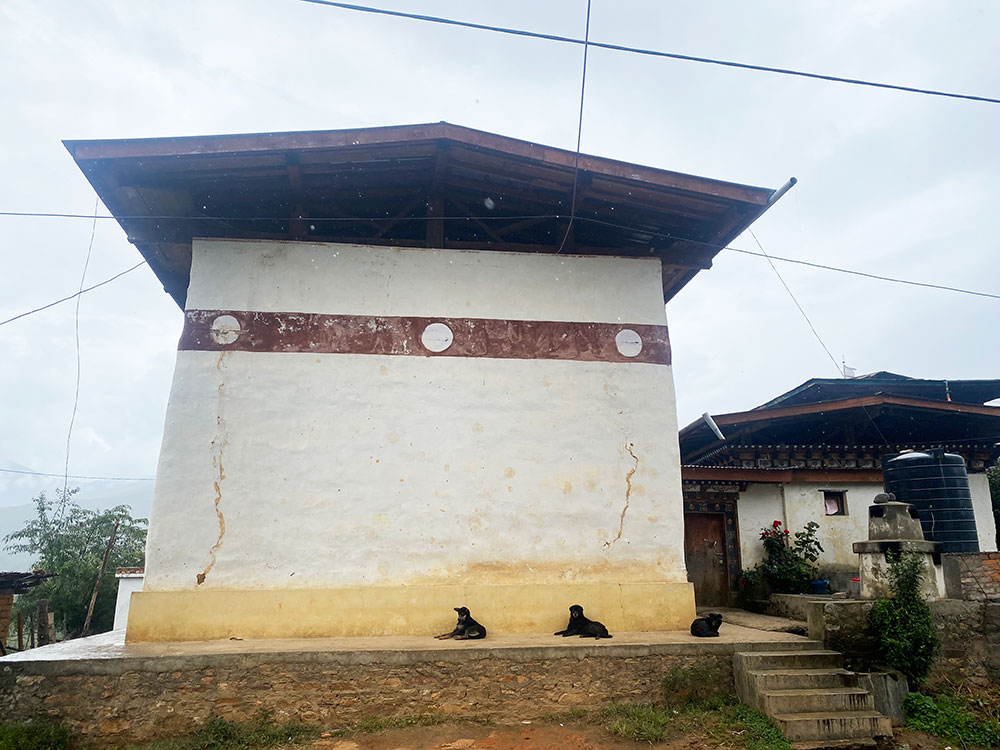Phub Dem
In the past, community lhakhangs were considered an essential part of the society in bringing people together and preserving ancient community practices.
However, with changing times, communities are finding it challenging to take care of lhakhangs. Some communities have had to hire people to look after it instead.
It has become increasingly difficult to find good and knowledgeable caretakers, according to the locals.
People leaving the villages has made it difficult for the communities to look after the lhakhangs. Many communities in Paro surrendered their lhakhangs to the central monastic body, and many are following the suit.
Yanka Pem, 90, recalls people of Nankha used to take turns to look after the Nankha lhakhang. She said that there was excitement when her family’s turn came to look after the lhakhang.
Gradually, not many people were willing to look after it, she said, adding that it was better to hand over the sacred lhakhang to a responsible agency before it is too late.
She said that it was difficult to find knowledgeable caretakers and young people were unwilling to take up the responsibility. “In the past, we contributed both in cash and kind and looked after it well.”
The Nanka lhakhang is under the care of 14 Kheps—prominent households. And those who have moved out of the main house who settled separately are called Zups.
It was learnt that there is a decrease in the number of Kheps and an increase in Zups.
Wangchang Mangmi Passang, during the dzongkhag tshogdu, said that Zups do not want to look after the lhakhang. “The Kheps requested the gewog to hand over the lhakhang to Zhung Dratshang as it is difficult for a small community to shoulder the responsibility.”
DT chairperson Tshering Dorji said that younger generations do not value ancient culture and practices, adding that such behaviours affect community vitality. “As many locals migrate out of the dzongkhag for jobs and other opportunities, it is becoming difficult to follow the practice.”
Besides, he said that if Zhung Dratshang takes over such lhakhangs, the monks could be of immense help to the community, especially during the ritual season.
Shaba Mangmi Sangay Dorji said it had become challenging to look after Chorten-Gangkha and Bjizhikha lhakhangs. He said that the caretaker, who has been looking after Chorten-Gangkha Lhakhang for the last 35 years is old and wants to retire.
He added that it was challenging for the community to look after the lhakhang. “The lhakhangs are often left unattended. It is best to surrender it in the best hands.”
Paro Dzongrab Kinley Gyeltshen said that such transactions could cost the government a substantial financial burden, adding that most of lhakhang have to undergo renovation as they are in poor condition.
Some local leaders said that the gewogs have already prioritised the renovation and maintenance of lhakhang before it is surrendered.
The DT approved handing over four lhakhangs to Zhung Dratsang, one to Rimpung Dratsang and another one to a Trulku.
However, according to the principal culture officer of Paro, Sangay Dorji, the Department of Culture temporarily put a halt in handing over any lhakhangs to Zhung Dratshang and private individuals.
He said that the department would be assessing all the lhakhangs in the country and study the lapses as some lhakhangs were left unattended after it was surrendered. “The objective of the assessment is to make sure that the lhakhangs are well taken care of and in secure hands.”
There are 183 lhakhangs in Paro.
Edited by Jigme Wangchuk


